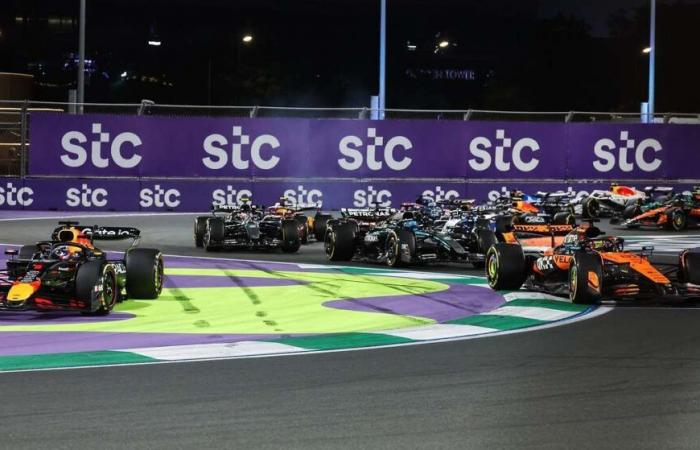
Formula 1 has definitely closed the door on the return of V10 engines and totally atmospheric propelars in the short term. The category commission has reiterated its support to the Regulation of Hybrid Power Units approved by the FIA in 2022 and will debut next season.
This regulatory package, in which manufacturers have been working for several years, combines an internal combustion engine with one or more electrical systems to improve efficiency and keep the show on the track.
Despite this commitment, FIA has reserved margin to introduce “small refinements” to solve some problems detected in the previous tests. The most urgent is the risk of cars to exhaust electricity before finishing long straight, a concern shared by pilots, equipment and fans.
To avoid this, it is proposed A “descending ramp speed” system that regulates the release of electrical power when leaving the curves, consuming the load more gradual and guaranteeing a progressive increase in speed in the rapid sections.
Currently, the regulation establishes that the electrical part contributes 50% of the total car power, that is, 350 kW. However, Some teams have proposed to reduce that peak to 200 kWso that cars have a more constant electric thrust along the entire return.
This idea could be applied only in the big prizes with especially demanding lines, such as Jeddah, Monza, Baku or Las Vegas, or in all circuits, something that the Commission of Formula 1 will discuss at its meeting this Thursday.
Not all manufacturers are convinced that subtracting 150 kW from the electrical component is a “small adjustment.” Some consider it a significant change that turns the cast towards the thermal enginereducing the electric contribution to 35 %. Those who defend the measure remember that, in the previous Turbo era, there was already a clear difference between the peaks of power in classification and the career settings.
In it paddock From Jeddah, Christian Horner, director of Red Bull Racing, openly supported the proposal: “If they do it in the interest of sport, then we have to support it.” On the contrary, Toto Wolff, at the head of Mercedes, described the idea of ”joke”, making its skepticism clear.
For its part, Audi and Honda have also expressed their resistance to introducing any modificationwhile in Ferrari the opinions are divided. His team leader, Frederic Vasseur, acknowledged that some effects of the regulation could have underestimated and asked not to rule out an adjustment that could offer legitimate competitive advantages.
In the end, tomorrow’s debate will define whether Formula 1 keeps its new hybrids intact or if it introduces touch -ups into the delivery of electrical power to avoid scares in the middle of the lines. The only sure thing is that, for now, the return of the V10 roar is very far in the calendar of the highest category.





